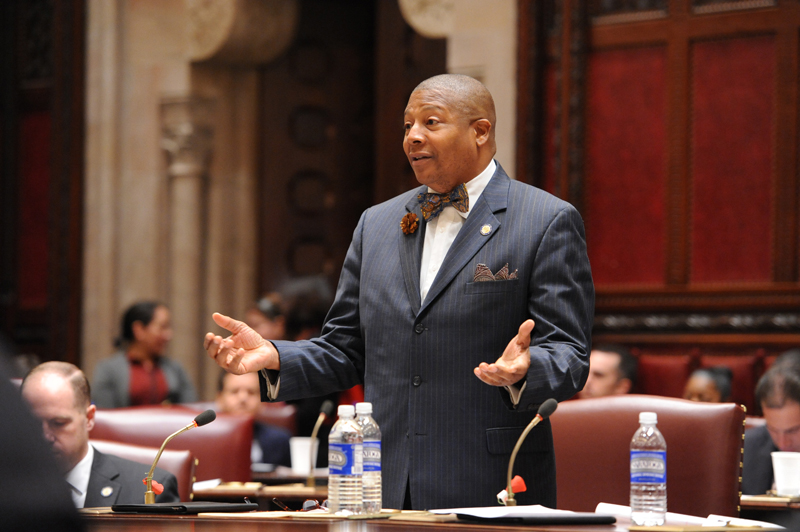BY STATE SENATOR JAMES SANDERS, JR.
Treasury Secretary Steven Mnuchin is exactly the sort of man Donald Trump campaigned against, a wall street insider and Ivy League graduate with no connection to the average American. He was formerly an Executive Vice President at Goldman Sachs and shares his boss’s flair for publicity. However, at least he was free of any embarrassing political baggage.
Of course, having some friends in DC might have helped Mnuchin. He is now flailing without allies through an attempt to force Congress to raise the debt ceiling, which allows enough money to be borrowed to fund government obligations.
Secretary Mnuchin has called on Congress to pass a “clean debt limit increase,” meaning one that will not require any politically difficult changes to spending. The problem is that the hard-line deficit hawks in the Republican party will not vote for it. To pass it, the Republicans would have to rely, as John Boehner was often forced to rely, on Democratic votes. President Trump’s first real bill to pass through Congress, then, would depend entirely on the goodwill of an opposition party that does not want the government to shut down.
Even then, he might not get the votes he needs. Trump’s own Budget Director, Mick Mulvaney, has already publicly undermined the effort by saying the bill should in fact make deep cuts. He speaks for many within the Republican party. With their own party split – and even the President’s office unable to reach a consensus – it is unclear if a debt limit increase will gain the support it needs.
The results on a local level would be dire and long-lasting. Certain expenses would be funded on an ongoing basis. Social security and veterans’ benefits would, for example, continue to flow. However, money for education, health, police and infrastructure not yet received would simply become unavailable until Congress found new funds, either through taxes or borrowing. It goes without saying that none of these areas can bear budget cuts – certainly not Medicaid program, certainly not our ailing subway, certainly not our stretched-thin schools.
It is unlikely that Congress would fail to fund most of these activities somehow, but if we even spend a short few days without funding it could cause lenders to raise interest rates on loans they offer to the US government. That might sound like a technicality, but it is money out of our pockets. When the interest rates for government debt go up, we the taxpayers foot the bill.
Forget the promise five percent growth rate and the trillion dollar infrastructure package – Trump and Secretary Mnuchin are about to have a hard enough time just keeping the lights on.






























